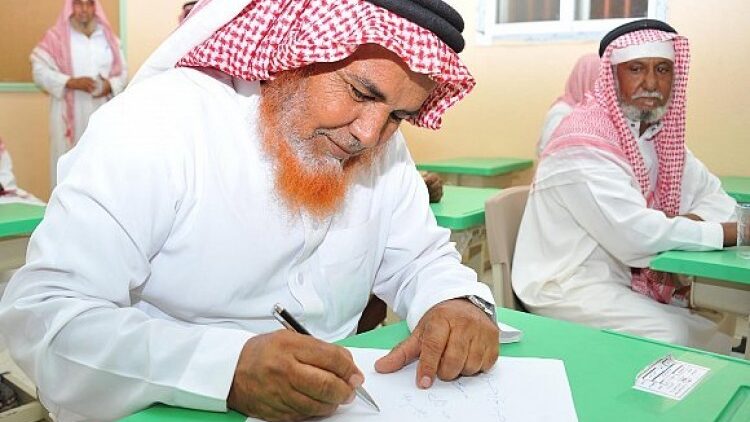Saudi Arabia has made remarkable strides in improving its educational infrastructure and increasing literacy rates over recent decades. As the country moves forward, one of its most ambitious goals is to achieve 100% literacy across all segments of society, with a strong focus on enhancing male education. This goal aligns with the broader objectives of Vision 2030, a transformative national plan that seeks to diversify the economy, advance social development, and foster innovation. Literacy initiatives have become a central element of Saudi Arabia’s national strategy, aiming to equip its population with the skills needed to contribute to the modern workforce.
The Current State of Literacy in Saudi Arabia
In the last few years, Saudi Arabia has made substantial progress in raising literacy rates, particularly among young men. The literacy rate in the country has shown impressive growth, with an increasing number of individuals having access to quality education. Recent statistics reflect this upward trend, with a large portion of the population being well-educated and prepared for the challenges of a rapidly changing global economy.
However, challenges persist, particularly in rural areas, where access to education may still be limited. Adults who did not complete formal schooling are also part of a group that faces barriers in acquiring literacy skills. These individuals may find it difficult to access learning opportunities that could help them enhance their education. To address these gaps, the government continues to implement various programs aimed at reaching underserved populations and ensuring no one is left behind in the educational journey.
Despite the progress made, Saudi Arabia remains committed to addressing these disparities and expanding educational opportunities for everyone. The government has invested heavily in education, including initiatives to digitize learning, build new schools, and train teachers. Additionally, special programs have been introduced to target adult literacy, offering flexible learning opportunities for those who missed out on education in their earlier years. These efforts are part of a comprehensive strategy to make education more inclusive and accessible, ensuring that Saudi Arabia’s future is built on the foundation of an educated and empowered population.
Vision 2030: A Roadmap for Educational Reform
Under the leadership of Crown Prince Mohammed bin Salman, Saudi Arabia has integrated education reform into the larger Vision 2030 framework. The plan includes modernizing the country’s educational system to create a more skilled and educated workforce.
Key strategies for achieving literacy goals include:
- Expanding Adult Education Programs: A key focus is addressing the needs of adult learners who missed out on formal schooling. Saudi Arabia has introduced several programs designed to help those in underserved regions and working adults who did not have access to traditional education.
- Leveraging Digital Learning: In order to make education more accessible, the Kingdom has embraced digital platforms that offer flexible learning opportunities, particularly for those who face geographical or time constraints.
- Promoting Inclusivity in Education: While the main focus has been on male literacy, the broader vision of Vision 2030 is to ensure equitable access to education for all citizens. By enhancing educational opportunities for men, the Kingdom aims to build a more balanced and diverse workforce.
- Awareness Campaigns: Public initiatives have been launched to emphasize the importance of education, particularly in terms of the long-term benefits such as improved job prospects, greater economic participation, and a better quality of life.
- Global Partnerships: Saudi Arabia has sought collaborations with international organizations to learn from global best practices and apply effective strategies to improve its literacy efforts.
The Benefits of Achieving Universal Literacy
Achieving 100% literacy will bring significant benefits, particularly in economic and social development. An educated male population, along with others, will contribute to:
- Boosting Workforce Productivity: A more educated population will help drive innovation, enhance productivity, and support economic diversification.
- Improving Social Mobility: Increased literacy provides better access to higher education and job opportunities, reducing inequality in society.
- Strengthening National Development: An educated population is essential for the country’s social and political stability. Educated individuals will be better equipped to engage in decision-making and governance.
Overcoming Challenges
Despite the progress made, there are still challenges to overcome. Cultural, logistical, and geographical barriers—especially in rural areas—present obstacles to achieving 100% literacy. Furthermore, adapting the education system to the evolving needs of society remains a priority.
To address these challenges, the government is investing in teacher training, improving infrastructure, and modernizing the curriculum to ensure accessibility and quality for all.
Conclusion
Saudi Arabia’s commitment to achieving universal literacy is central to the nation’s development strategy. By investing in education, technology, and inclusivity, the Kingdom is empowering its population to contribute to national growth and prosperity. With continued efforts, Saudi Arabia is poised to reach its literacy objectives and establish itself as a global leader in education.
Source: Arab News,The Milli Chronicle.
https://gulfmagazine.co/energy-efficiency-thermal-energy-conservation/



